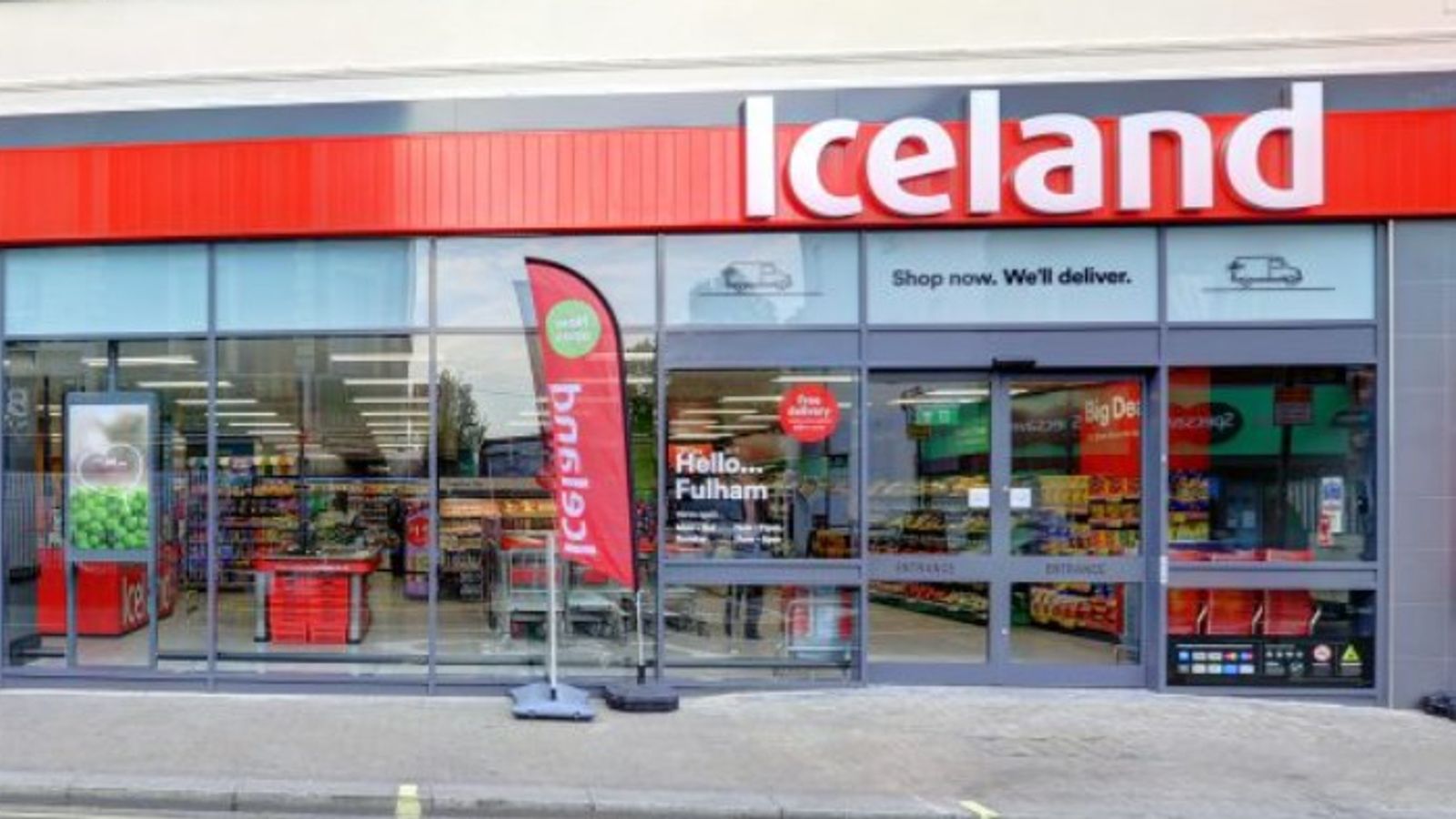Price rises for consumers are “inevitable” as a consequence of the HGV driver shortage, the boss of Iceland has warned.
Almost 50,000 drivers have left the road in the last two years, leaving retailers, suppliers, and hauliers competing for a diminished pool to supply clients.
The scramble for supplies has led to sharp increases in wages for qualified drivers and four-figure joining bonuses offered by some large companies including Amazon, Tesco, and John Lewis.
This week, pub chain Wetherspoons has reported shortages of some beers, and Coca-Cola has warned that a shortage of aluminium cans could affect supplies.
Please use Chrome browser for a more accessible video player
Richard Walker, managing director of Iceland, told Sky News those costs would lead to inflation, and again urged the government to allow EU workers to help ease the driver shortage.
“I think inevitably it will lead to some form of inflation because this driver issue is affecting the whole supply chain,” he said.
“It’s not just affecting our part of it, which is from the depots to the shops. It’s also affecting the suppliers into the depots or the produce from the fields into the supplier.
“And everyone is having to increase wages. We’ve done double-digit wage increases now across our depots, and I think that that will lead to inflation in the market. It’s inevitable.”
The driver shortage has been blamed on a combination of Brexit and the pandemic, with many EU drivers who returned home during lockdown ineligible for visas to work in the UK since 1 January.
Please use Chrome browser for a more accessible video player
Business leaders have called on the government to temporarily grant skilled-worker visas to HGV drivers to ease supply problems in the build-up to Christmas.
But ministers have refused, and last week Business Secretary Kwasi Kwarteng said firms should train and hire British workers instead, a position Mr Walker says is likely to lead to shortages.
“Longer term, one of the potential benefits of Brexit is that we can recruit all UK workers and that’s absolutely the right way to go, but that’s going to take time that will take anywhere between six and nine months,” he said.
“Obviously we have Christmas between now and then. So there’s a very simple solution actually, which is merely to add HGV drivers to the skilled worker lists which, by the way, includes ballerinas and concert orchestra musicians, but it doesn’t include HGV drivers – the men and women who have literally been keeping the show on the road through the pandemic. I think it’s madness.
“The government seems to be very firm. We’ve written to various government departments as has everyone across our industry, sounding the alarm very clearly, but at the moment they don’t seem to be willing to listen and this is serious. I can only see it getting worse over the coming weeks and months.”






















